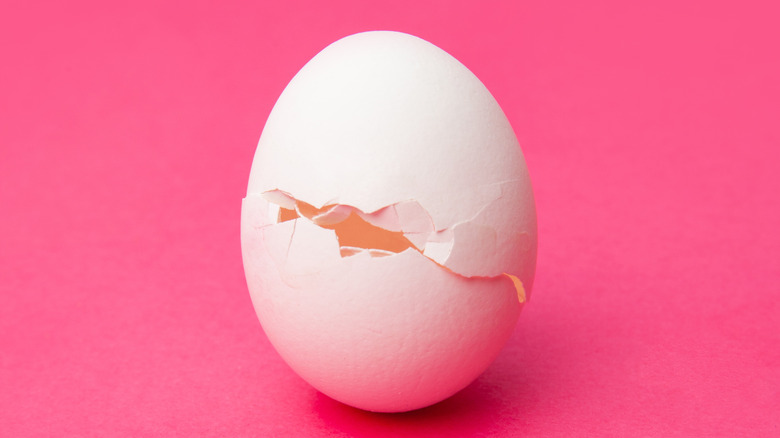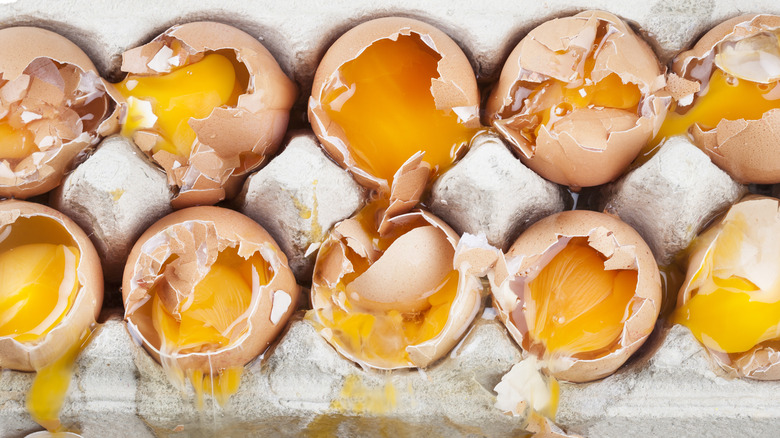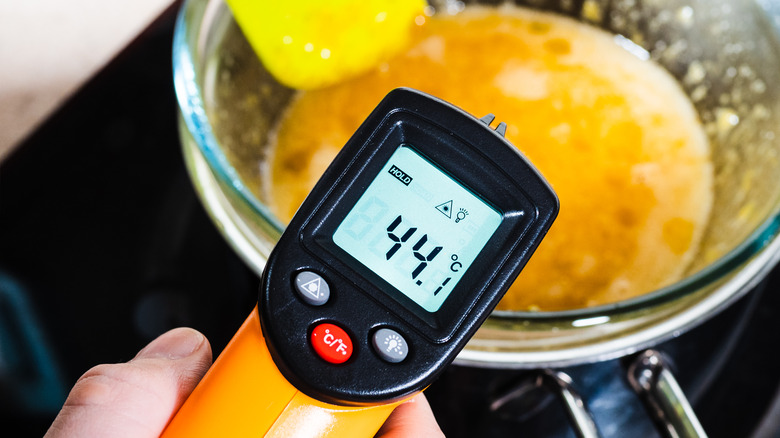When To Throw Away And When To Salvage Eggs With Cracked Shells
So you're buying eggs — if you're a savvy grocery shopper, you'll always open up the carton and check inside that they're all intact and not broken. But sometimes, life happens. Maybe you dropped your grocery bag on the way home, or maybe there were some sneaky cracks hiding underneath some of those eggs that you just didn't notice when you were checking them. Either way, you've arrived home, popped open that carton, and you're saddled with some cracked eggs: ugh.
Mercifully, all is not lost, and you may be able to rescue those eggs, depending on a few factors (and the emphasis here is on "may"). Firstly, you'll need to figure out if those puppies are safe to eat. If you cracked the eggs yourself (perhaps by handling the carton roughly) and you know for a fact that the cracks are fresh (for example, in the short window while you were transporting them home), you're probably going to be able to salvage them. However, if you don't know when they were cracked — it's best to toss them.
Cracked yesterday? Throw them away!
If the cracks in your eggs aren't fresh, that could be a problem. According to the U.S. Department of Agriculture (USDA), bacteria like Salmonella and other pathogens can get into eggs through these cracks. If you didn't check the eggs for cracks before you bought them, then it's possible that they were sitting in the supermarket for hours or days with cracks. To put it mildly, that's not great in terms of food safety, so you should throw the cracked ones away (the non-cracked ones are still okay to use, even if they're in the same carton).
If you're not sure how long the cracks have been there, it's better to play it safe. For example, maybe you checked the eggs for cracks before you bought them, but you only took a quick glance and didn't really look closely for smaller cracks (or maybe the cracks were hidden on the undersides of the eggs). If there's any question mark about how long the cracks have been there, throw them away.
Take note: Even if the eggs are still intact and none of the eggs have seeped through the cracks, it's still important to follow these guidelines. Bacteria can still get in through the cracks even if there are no leaks.
How to salvage freshly-cracked eggs
If you're confident that the cracks in your eggs are fresh (for example, during the short trip home from the store), then the USDA notes they're still safe to use. In this case, you'll want to completely crack the egg open and empty it out into a clean container. This container should be able to be sealed or covered firmly. Good storage options might be a glass jar with a lid, a Tupperware container, or a bowl or dish that you can cover tightly with plastic wrap. Store the egg in the refrigerator and be sure to use it within no more than two days. To avoid risky mistakes, the refrigerator should be at a maximum of 40 Fahrenheit.
Any cracked eggs that you're trying to save should be cooked as thoroughly as possible before you eat them. The CDC recommends cooking them to a temperature of at least 160 degrees (165 degrees if you're cooking them in a dish with meat).



